What’s in a brand? America’s biggest names such as Coca-Cola and Apple test for ‘Trump tarnish’

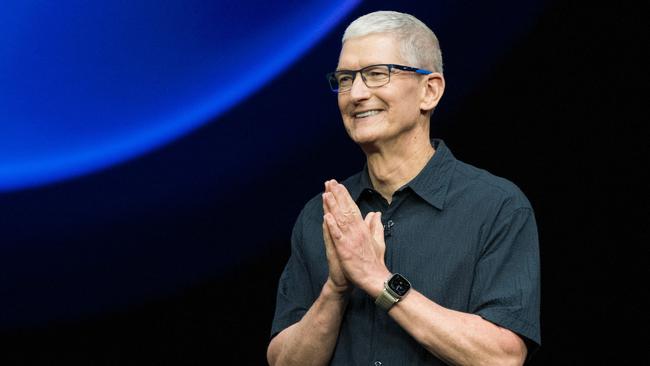
As American businesses brace for the real financial cost of tariffs, one of the unexpected consequences of Donald Trump’s trade war they are watching is the blowback on their brands.
Global names such as McDonald’s, Apple and Coca-Cola that are considered pillars of the American identity have been quietly testing the strength of their brands as the world hardens its opposition to Trump’s actions.
America Inc is not merely jumping at shadows. The concern of being swept up in geopolitics is real.
Consumer boycotts, particularly around social issues, can have a devastating effect on sales and profits, and some brands take years to recover. Once the top-selling beer in the US, Bud Light has yet to regain its position from a social media marketing disaster involving a transgender influencer.
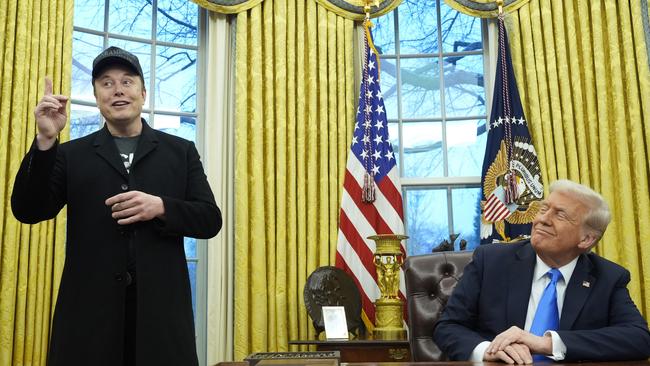
It was the anti-Trump wave that propelled former central banker Mark Carney to a remarkable victory as Canada’s Prime Minister.
Carney convincingly led what had been a tired Canadian Liberal Party to another term. He fanned the anti-Trump flames in his bid to become PM, although – with the US President repeatedly taunting Canada by describing it as the 51st state – it was an easy line of attack.
The backdrop was already there as Canadians launched their own consumer boycott of American brands after Trump singled out his northern neighbour and Mexico in the early opening salvo of his trade war.
The global market turmoil on Trump’s so-called Liberation Day and the 10 per cent tariffs imposed on Australian exports, including beef, delivered a big election tailwind for Prime Minister Anthony Albanese.
The clearest example of brand damage out of the Trump reboot has been EV-maker Tesla, after billionaire boss Elon Musk ingratiated himself into the President’s team. Sales have crashed outside the US since the start of the year (although the company said there was a model changeover at the same time).
Musk’s controversial work slashing government spending and his social media presence has turned off prospective buyers of his cars. Tesla has been subject to direct protests. The EV-maker’s first-quarter earnings plunged and recently it said its full-year sales could be meaningfully impacted by a “changing political sentiment”.
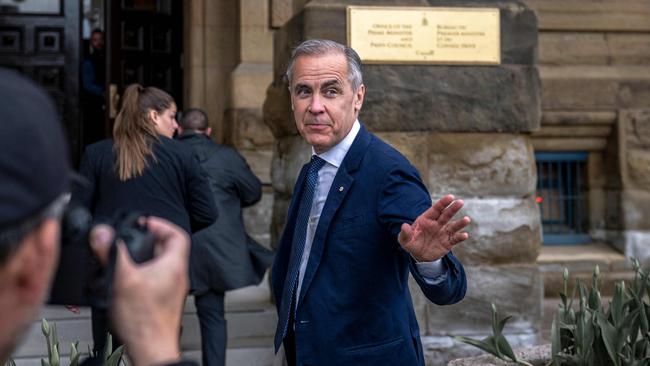
Musk expanded on this on an investor call, saying there had been “some blowback” on Tesla for the time he had been spending in government. Under pressure from shareholders and what also appears to be the Tesla board, Musk has since returned to work full time as CEO of carmaker.
Global fast-food giant McDonald’s has been running research in recent weeks across each of its top global markets.
Here it has been asking three distinct questions. How does the consumer feel about America, the country? How does the consumer feel about American brands? And then, specifically, how does the consumer feel about McDonald’s?
McDonald’s global chief executive Chris Kempczinski said results so far show there has been “an uptick in anti-American sentiment”. However, this is yet to filter down into damage at a brand level.
The most pronounced anti-American moves were in northern Europe and Canada, Kempczinski said. There had been no meaningful increase in Latin America, and nothing yet seen in Asia.
“The good news from our perspective is that there has been no change in how the consumer globally feels about the McDonald’s brand. We’re not seeing any American sentiment have any impact on our business,” Kempczinski told an analysts briefing this week.
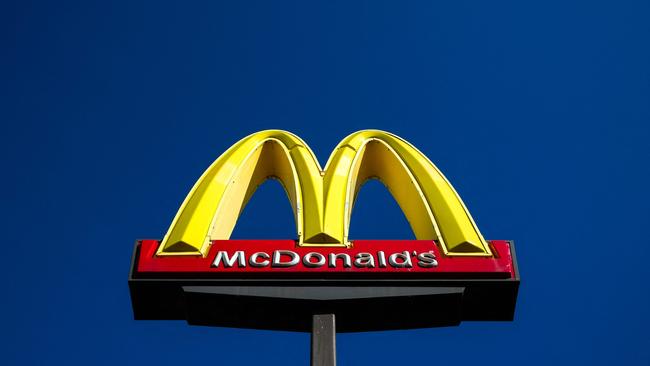
Atlanta-headquartered Coca-Cola found itself more directly in the consumer line of fire. It was hit with an intense backlash shortly after Trump was sworn in, but this was around Trump’s immigration measures rather than trade.
Attacks on Coke through social media, particularly TikTok, went viral as some influencers called for boycotts. (It was incorrectly asserted the drinksmaker had fired Latino workers in Texas in response to Trump’s deportation efforts).
“There were some very unfortunate videos circulating around, false – completely false – but they impact the business,” Coca-Cola chief executive James Quincy said.
He called out weakness in sales, particularly in Mexico. Significantly, there were also signs of a pullback of Hispanic consumers – in the US.
Quincy said Coke planned to emphasise the “localness” of “Brand Coca-Cola”. Coke is mostly produced by bottlers across a number of countries for local markets.
“We’re ironically known for Coca-Cola, the world’s most global brand and a set of other global brands. But along with that kind of headline, actually it’s a very profoundly local business. The beverages in each country are largely made in that country by local employees using local inputs,” he said.
“And in the moments of geopolitical tension, one of the key strategies is to drive and reinforce the ‘made in or made by’. The fact that it’s a local business, the factory is down the road from you, your neighbours make the product.”
Early Friday, Apple boss Tim Cook confirmed demand for the tech major’s products were still strong globally and this was reflected in a number of quarterly sales records across the world, including the UK, Spain, Finland, Brazil, Turkey and India.
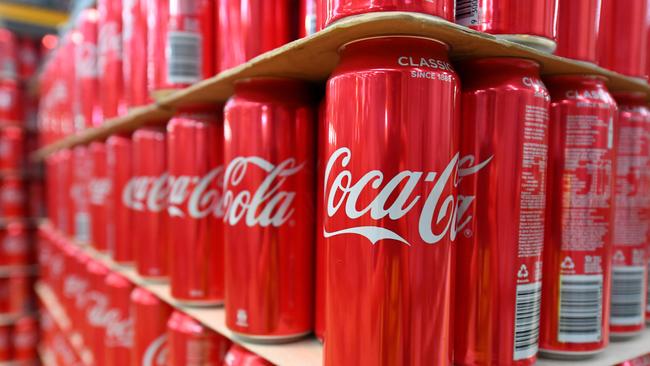
Sales of Apple products in China were down 2 per cent during the March quarter, the period ended before Trump’s “Liberation Day” announcement. But Cook noted China was flat largely taking into account currency movements and could be compared with a sharply weaker December quarter.
“(The) iPhone was the key driver of the improvement sequentially,” Cook said. The Apple smartphone was among the top two models sold in urban China during the quarter, while the iPad and the Mac were winning over new Chinese customers.
“There’s some positive nuggets there,” Cook said about China. This will be closely watched, given Greater China represents one of Apple’s top three markets, behind Europe and the US.
Another big consumer brand, Ford, delivers its quarterly results next week. Shoemaker Nike has a different reporting cycle and releases its result in June.
Adapt to survive
The Trump-induced trade tensions are challenging US chief executives to adapt. This is the biggest management test since the Covid-19 pandemic.
In the past two weeks, as a result of this, it has been a consistent story about how American bosses are reacting to the crisis.
It comes down to controlling the controllables, sweating the supply chain and taking a long-term focus.
This week, Alcoa chief executive Bill Oplinger told The Australian the uncertainty about tariffs, including where they would land, “is certainly challenging our agility”.
“We’ve learned to be pretty agile pretty quickly,” the Alcoa boss said.
Quincy has spoken about Coca-Cola’s “localism” strategy. He is also determined to “redouble down on marketing, innovation, and really continue to drive and expand”.
Kempczinski is another who intends to talk up its local franchise network. The McDonald’s chief pointed out the fast-food giant was often one of the biggest employers in the markets it operates.
“We’ll stay true to what makes us uniquely McDonald’s: great food, exceptional value and an inclusive environment that welcomes all,” he said.
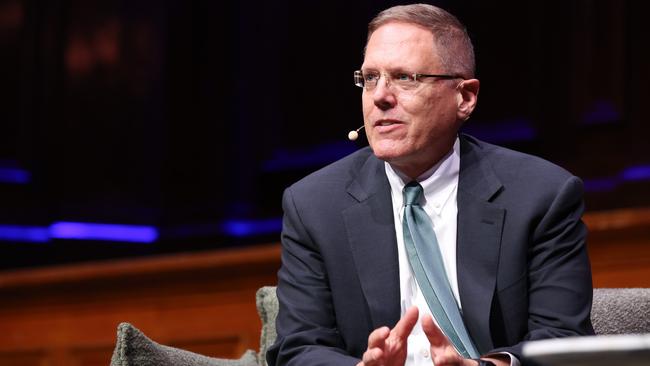
Mining and construction machinery maker Caterpillar exports from the US. It is facing up to a $US350m ($545m) hit from tariffs.
Caterpillar executives have responded by strengthening the balance sheet. This included “belt-tightening” by cutting back discretionary spending and travel while slowing imports for some products to ease the upfront costs.
Amazon’s global boss, Andy Jassy, said when facing a complex environment, the digital retail giant does what it always does: focus on the inputs “that we can control to protect the customer experience”.
Apple’s Cook said the tariff impact on the tech company was expected to be around $US900m in the June quarter alone but cautioned that there was no way of knowing what an annualised number would be.
With China hit with a 125 per cent tariff, he is overhauling Apple’s vast supply chain and adding to investment in the US.
The supply moves involve shifting production of iPhones sold in the US having India as their country of origin. China would continue to be the country of origin for the vast majority of total product sales outside the US.
During times such as this, Cook said it was important not to become reactive. “We will manage the company the way we always have, with thoughtful and deliberate decisions, with a focus on investing for the long term, and with dedication to innovation,” he said.


